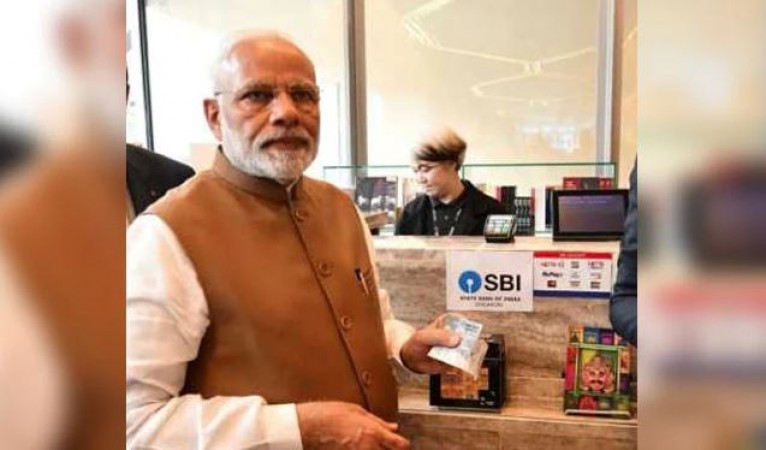
New Delhi: A recent research report by the State Bank of India (SBI) unveiled the significant role played by the Modi government in formalizing the Micro, Small, and Medium Enterprises (MSMEs) sector in India. The report, published on Tuesday, August 15, highlighted key initiatives such as the 'Udyam Registration Portal' and the newly launched 'Udyam Assist Platform' in driving formalization within the MSME sector.
Launched on July 1, 2020, the 'Udyam Registration Portal' streamlines the process of formalization by allowing paperless registration that is free of charge and devoid of document submissions. The registration solely requires an Aadhar number. Additionally, this year saw the introduction of the 'Udyam Assist Platform' (UAP), which extends the formal ambit to Informal Micro Enterprises (IMEs).
The SBI Research report pointed out that the Udyam initiatives are instrumental in encouraging MSMEs to file Income Tax Returns (ITRs). Roughly 22 million micro, small, and medium enterprises have registered on the Udyam portal, contributing to an uptick in ITR filings. The report cited the correlation between Udyam registrations and the rise in ITR submissions, indicating that these efforts not only drive formalization but also enhance tax compliance.
Furthermore, the report spotlighted the transformation of India's banking sector between FY 2013-2014 and FY 2022-2023. The banking credit surged from ₹60 trillion to ₹138 trillion, marking a credit growth of over 2.3 times. Over the same period, bank deposits swelled by 2.4 times, rising from ₹77 trillion to ₹187 trillion. The net profits of banks tripled from ₹809 trillion to ₹2,480 trillion during FY 2013-2014 to FY 2022-2023, attributed to a process of consolidation.
The research emphasized that the consolidation process led to larger and stronger banks and financial institutions, resulting in enhanced profitability and synergy with non-bank players. The government's commitment to financial inclusion was realized through the opening of 49 crore Pradhan Mantri Jan Dhan Yojana (PMJDY) accounts. Moreover, the analysis of Income Tax returns in FY 2022-2023 revealed the ascent of India's middle class, an effect attributed to the formalization of 7 crore Micro, Small, and Medium Enterprises (MSMEs) and the empowerment of the middle class by the Modi government.
The report projected a substantial rise in ITR filers to 48.2 crore in FY 2047, up from 7 crore in FY 2022-2023. Around 85.3% of ITR filers by then will be eligible to pay taxes. Approximately 25% of filers are expected to transition out of the lower-income strata by FY 2046-2047. The per capita income is projected to surge from ₹2 lakhs in the current fiscal year to ₹14.9 lakhs by FY 2047. The rise in weighted mean income between Assessment Years 2011-2012 and 2022-2023 indicates a shift of filers from the lower-income group to the upper-income group, demonstrating the progress achieved in income levels.
Shiv Sena MP Sanjay Raut: Sharad Pawar Unlikely to Repeat Nephew's BJP Alliance Mistake
Jammu and Kashmir Bank Chief Manager Dismissed for Alleged Links to Pakistan's ISI